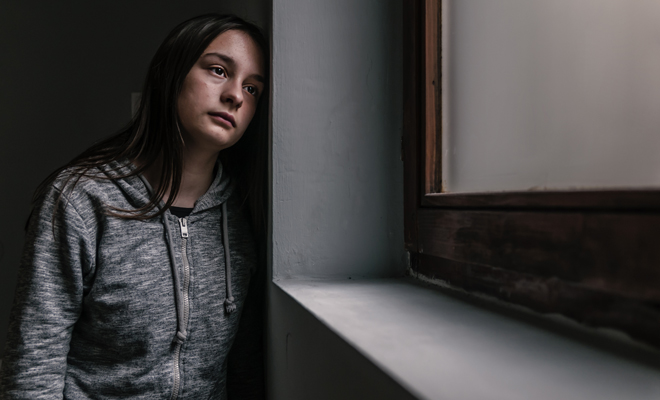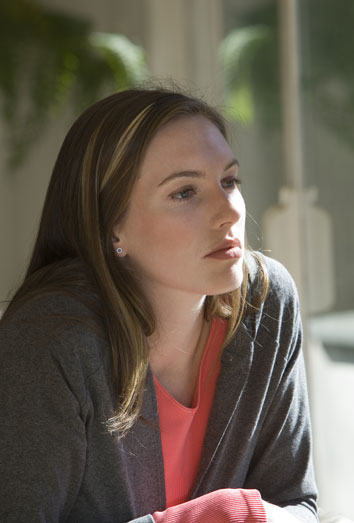Is your house full of things? You may be one of those types of people who resist throwing away things that are no longer useful or that you no longer use, you may love to collect objects or furniture from the street, buy some decoration in the flea markets or have a or multiple collections. And that doesn’t necessarily mean you have Compulsive Hoarding Disorder. Do you want to know more about this type? Do you want to know if you suffer from it? Very attentive to their symptoms and their treatment.

Obsessive Compulsive Disorder (OCD)
As you already know, Obsessive Compulsive Disorder or OCD is a disease. It is a disorder closely linked to anxiety that manifests itself in many ways. Some have to wash continuously, some need, others have to check the same thing several times and still others feel the need to accumulate.
All this is produced by obsessive thoughts. Obsessions lead to thinking that if something is not done in a certain way, something bad will happen. That if you don’t wash your hands continuously, you will catch a disease. That if you do not mentally repeat certain words or phrases, the worst of misfortunes will fall on you or your loved ones. That if you do not check if you have closed the door of the house, insecurity will block you throughout the day.
And fear, panic and anxiety. The universe will not be in order until you do that compulsion that you need for everything to go well. It’s like a way of keeping all the events in life under control, something that is still a fantasy, right? Because no matter how many compulsions, tics or rituals you do, there is always something that escapes us.
What is Compulsive Hoarding Disorder?
The world of Obsessive Compulsive Disorders is characterized by three things: obsession, compulsion, and anxiety. As you can see, a most explosive cocktail for mental and physical health that can end up destroying the life of the person who suffers from it. Among the different types of OCD is Compulsive Hoarding Disorder.
In this hoarding disorder, the compulsion is to accumulate, acquire, save things. What? The ones that are they can always be the same objects or they can be varied objects. It is a collecting carried to the delirium that provides them with a security that they never quite achieve. Because there is no end to OCD, the obsessions never stop and the compulsions only manage to reduce the discomfort of anxiety for a short period of time.
Compulsive Hoarding Disorder can lead you to accumulate newspapers and magazines, empty bottles, boxes, electrical appliances that have stopped working many years ago, computers, kitchenware, and be careful! Even animals. This OCD is often related to Diogenes Syndrome, although they have some differences.
Do you have Compulsive Hoarding Disorder?
And how do you know if you have this disorder or just like to save things? It is that you may resist throwing away that old chair because it brings back family memories or you like to keep all the empty cookie boxes or you have some curious collection. But do you have OCD?
The first thing you have to look at is if this behavior of accumulating things is causing you family problems. It’s okay because your partner doesn’t share your “mania” but, are you running out of room at home for storing so many things? Or maybe you don’t dare to invite anyone to your house so they don’t judge you.
And the second thing you have to look at is the reasons why you keep things, something that is closely related to the symptoms of Obsessive Compulsive Disorder.
Symptoms of Compulsive Hoarding Disorder
Do you want to accumulate all those things or do you need to accumulate them? That is the big question that will reveal to you if you suffer from a disorder or if you have a very peculiar hobby. The OCD presents high degrees of anxiety, even reaching panic when the compulsion cannot be carried out.
A thought invades you and floods your entire day. “I need to have this object at home”. And you don’t concentrate at work, you don’t pay attention to the conversation with your friend, you forget to do the shopping and at home you feel absent because the thought has become an obsession.
You start to get nervous, your hands sweat, you have palpitations, your anxiety increases because you need to pick up that object and take it home. You need to have it close to you, along with your other prized possessions. And until you have it, your discomfort is increasing, the confusion, the doubts about whether something bad is happening to you, the insecurity for not understanding what is happening.
It is happening that you have an Obsessive Compulsive Disorder, but all that you forget as soon as you manage to get the object home. One more. The relief is immediate. Now you’re fine, now you think you’re doing the right thing because, don’t you see how everything inside of you has been put in order? Unfortunately that feeling of security does not last long.
And soon you will find another object to store, another thing to accumulate. Because your obsession asks you so and compulsion is the only thing that can calm you down.
How to treat Compulsive Hoarding Disorder?
As you can imagine, Hoarding Disorder is a serious problem that professionals have to deal with. Psychological therapy is necessary in all cases, since it is not something that we can solve or cure by ourselves. Or how many times have you promised yourself that this is the last time you bring something else into the house? Have you kept that promise?
Help often comes in the form of cognitive, a highly successful technique for treating phobias, anxiety disorders, or even depression. Because it is a method that gets to the root of those obsessive thoughts and transforms them into more realistic ones. What is the worst that can happen if you do not accumulate that at home? Would you put yourself or your family in danger?
Once the thoughts have been transformed, the obsessions give way to conscious and realistic reflection and it is from there that behavior can begin to be changed. It takes a while, of course, because habits built over time are resilient. But you are more resistant than them and you will succeed. Without haste, but without pause, working every day with your psychologist so that everything goes well.
In some cases, drug treatment may also be needed to overcome this Compulsive Hoarding Disorder. Don’t be afraid of medications if both your doctor and your psychologist have agreed. Any help to overcome OCD is well received and you will be able to recover with greater guarantees of success.
And why not try other therapies? Your references in the treatment of Compulsive Hoarding Disorder will be, as we have already said, your doctor and your psychologist, but do not rule out other options such as natural therapies or the practice of yoga, meditation and, especially, relaxation that will help you a lot. When it comes to reduce anxiety.
Take a breath, take a deep breath and go ahead, because you too can overcome OCD.






